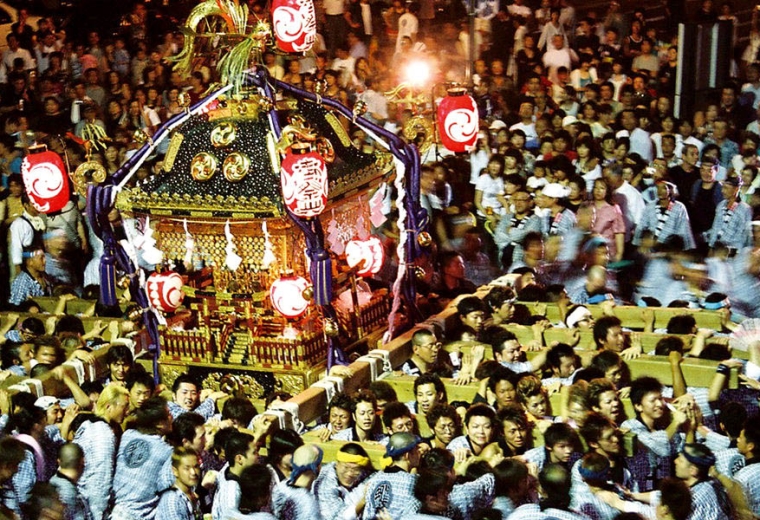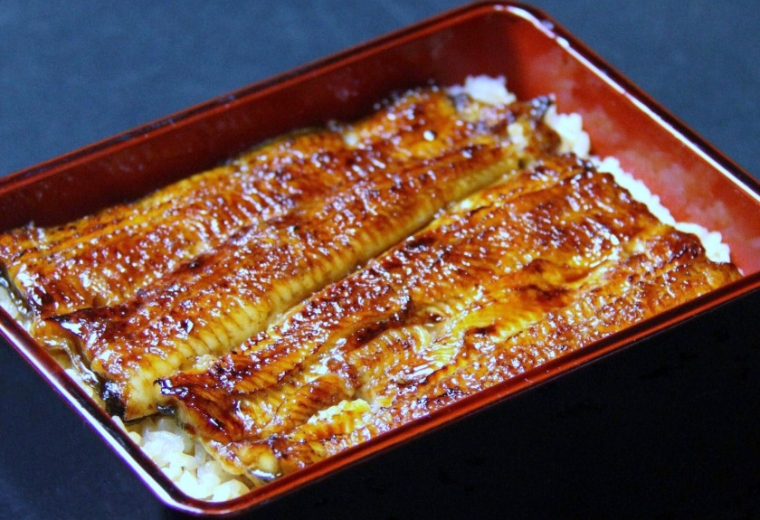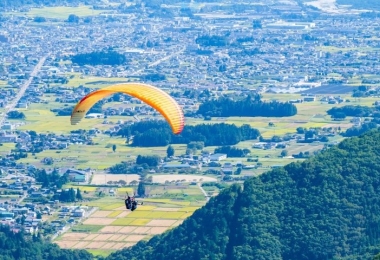Amazing Views! 9 Picturesque Destinations in Ibaraki
Nature
2022.04.25
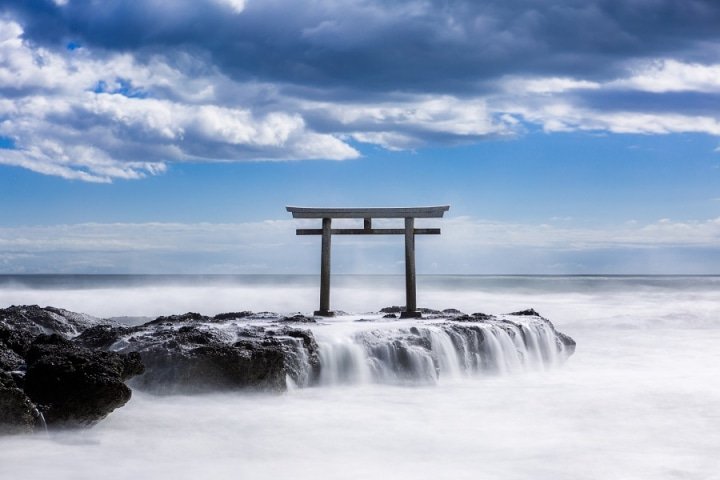
Ibaraki Prefecture is a little under a two-hour drive away from central Tokyo. Home to mountains and plains and facing the ocean, Ibaraki has been nicknamed "the Kitchen of Eastern Japan" for its wide selection of fresh ingredients.
What’s more, this region has an abundance of stunning natural scenery! It isn’t an overstatement to call it “a treasure trove of amazing sights.” We’ve carefully selected nine locations with enchanting views in Ibaraki for nature and photography lovers out there!
1. Spring: Kairakuen Garden’s Plum Blossom Festival
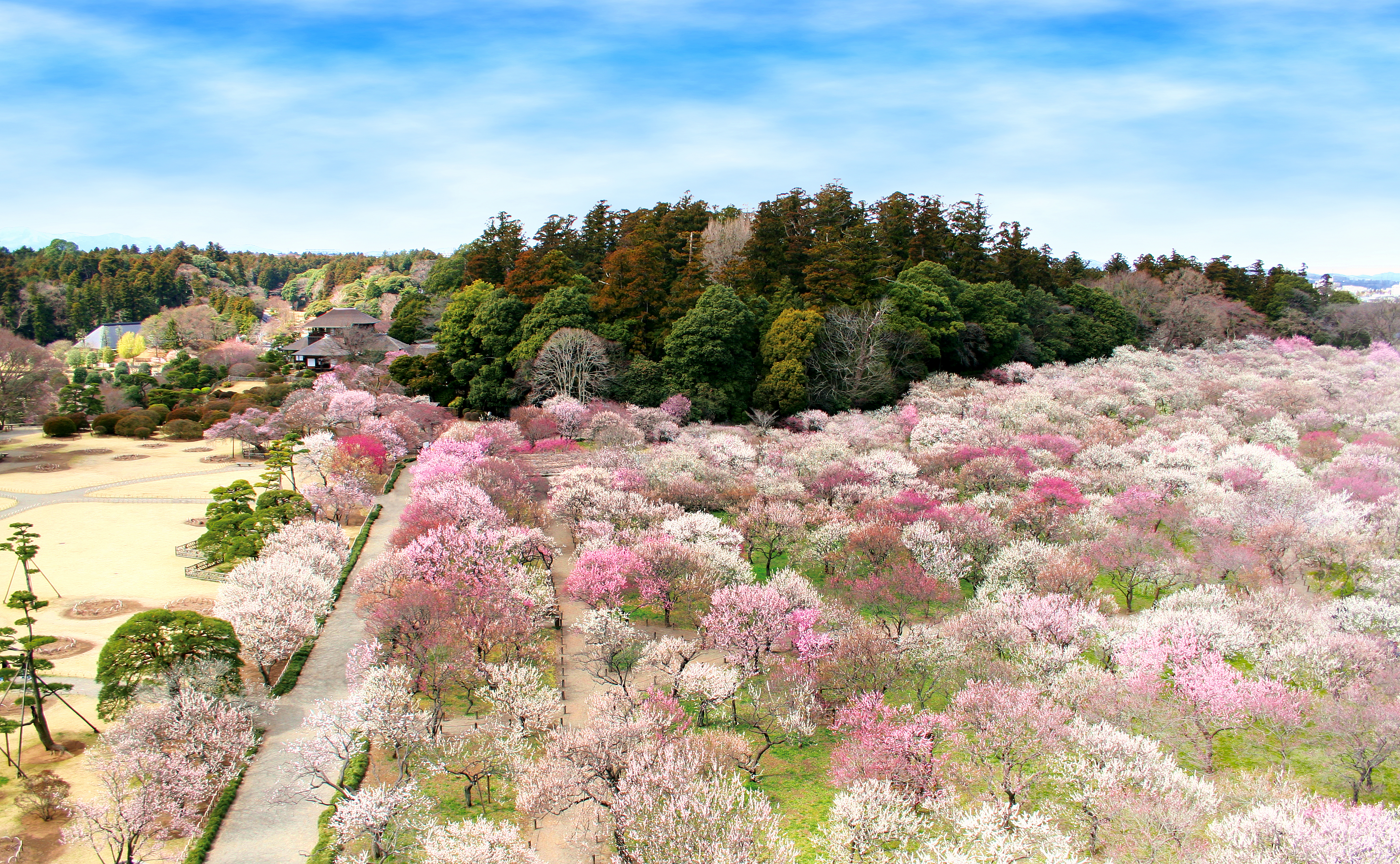
Kairakuen Garden was completed during the lifetime of Nariaki Tokugawa (1800-1860), the ninth feudal lord of the Mito clan. It is ranked among the top three gardens in Japan alongside Kenrokuen in Kanazawa and Okayama Korakuen.
Approximately 3,000 plum trees of one hundred different varieties are planted in the garden. During early spring, the flowers successively blossom spreading their gentle fragrance and signaling the coming of spring.
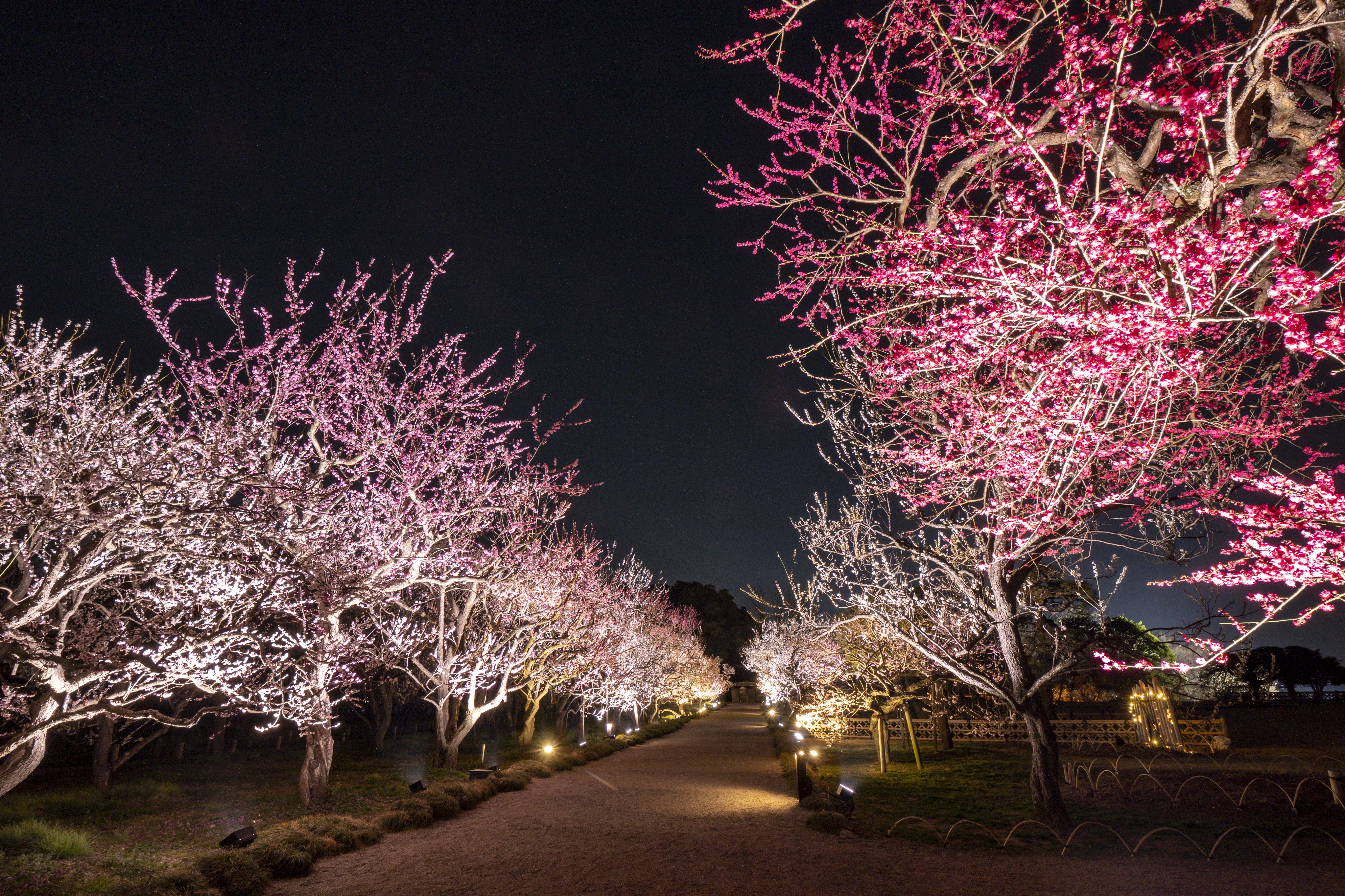
During the Mito Plum Blossom Festival, held every year during the plum season, you can enjoy traditional performing arts and night illuminations.
The illuminated plum blossoms have a different charm than during the daytime. Don’t miss this chance to see them! During the festival period, a firework display is held for visitors to enjoy an additional show of fleeting flowers of light.
Information
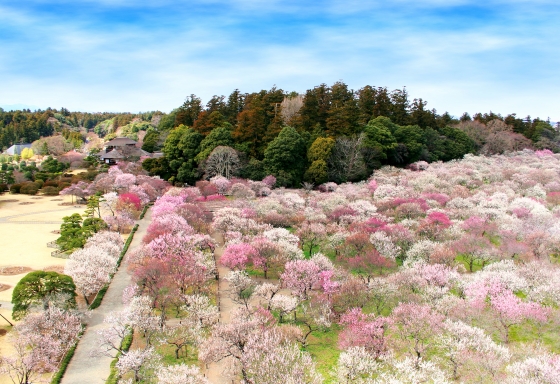
Mito Plum Blossom Festival
The Mito Plum Blossom Festival began in 1896 when the railway between Mito and Ueno opened, and trains for viewing plum blossoms were implemented. The festival is held annually from mid-February to l…
See More2. Spring: Hitachi Seaside Park
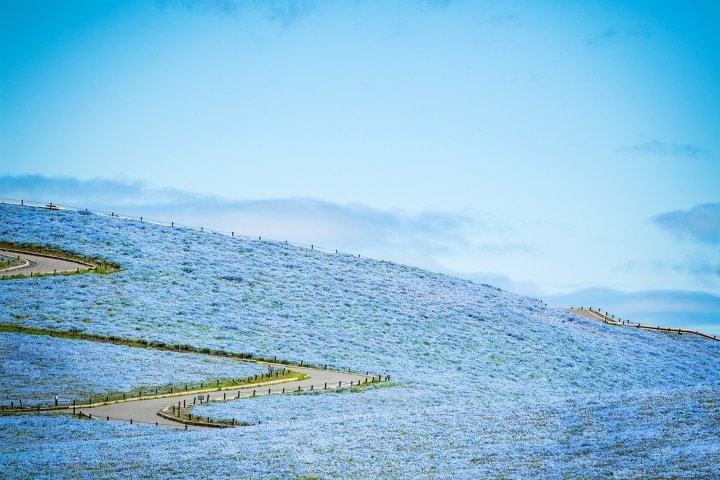
Hitachi Seaside Park is full of flowers and lush greenery. The extensive grounds are split into various areas; Miharashi Hill is the most famous among the attractions.
Come spring, 5.3 million nemophilas cover the hill completely in a striking blue hue. You’ll be spellbound by the wondrous nemophilas merging into the sky!
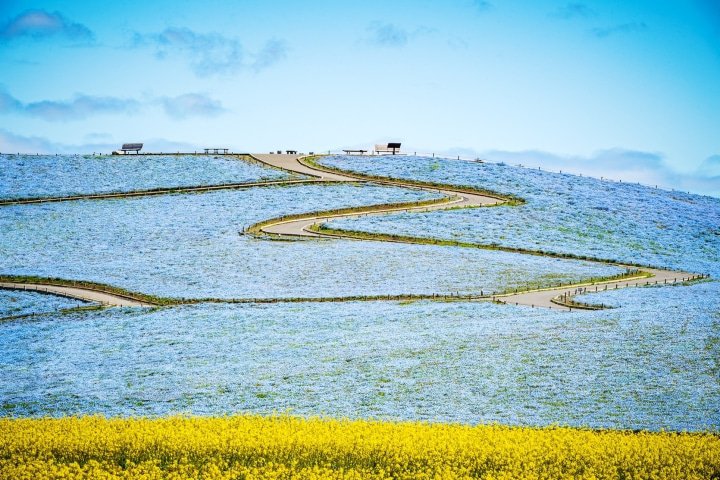
The yellow rapeseed flowers, which also bloom in early May, and blue nemophilas create a romantic view. Hitachi Seaside Park is the only place where you can enjoy such a sight.
In autumn, kochia bushes dye the hill bright red. The vivid contrast between the red and bright blue sky is worth seeing!
Information
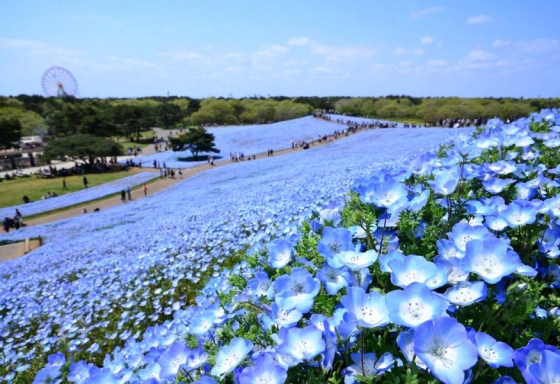
Hitachi Seaside Park
Hitachi Seaside Park is perhaps Ibaraki's most famous tourist destination for its Instagram-friendly fields of flowers. This vast park is best known for the stunning blue nemophila flowers in spring …
See More3. Summer: Ryujin Suspension Bridge
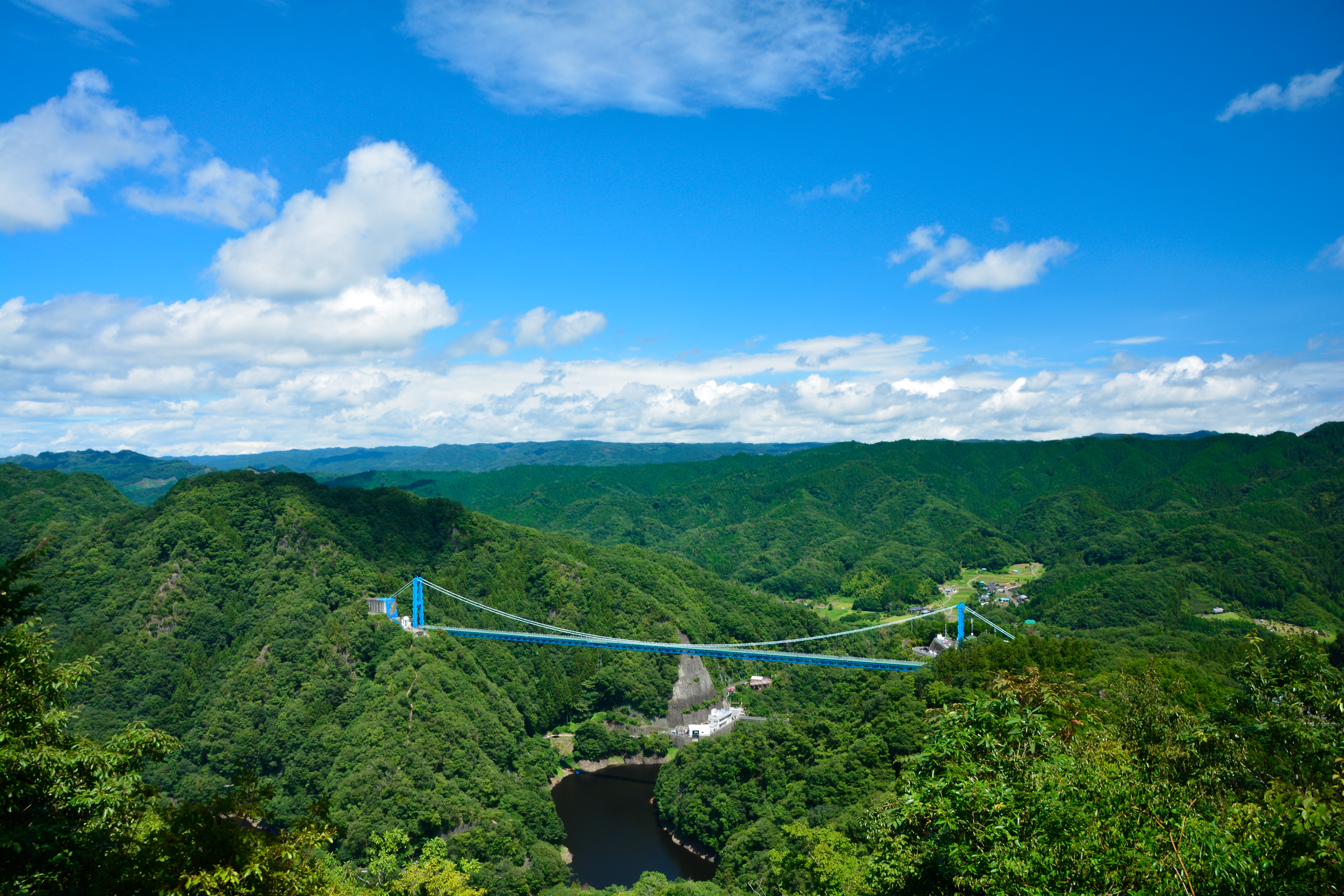
Ryujin Suspension Bridge is located in Okukuji Prefectural Natural Park. Measuring 375 meters in length, it is the longest suspension bridge for pedestrians on the main island of Honshu. The suspension bridge sits 100 meters above the lake. In recent years, it’s been a popular destination for bungee jumping enthusiasts.
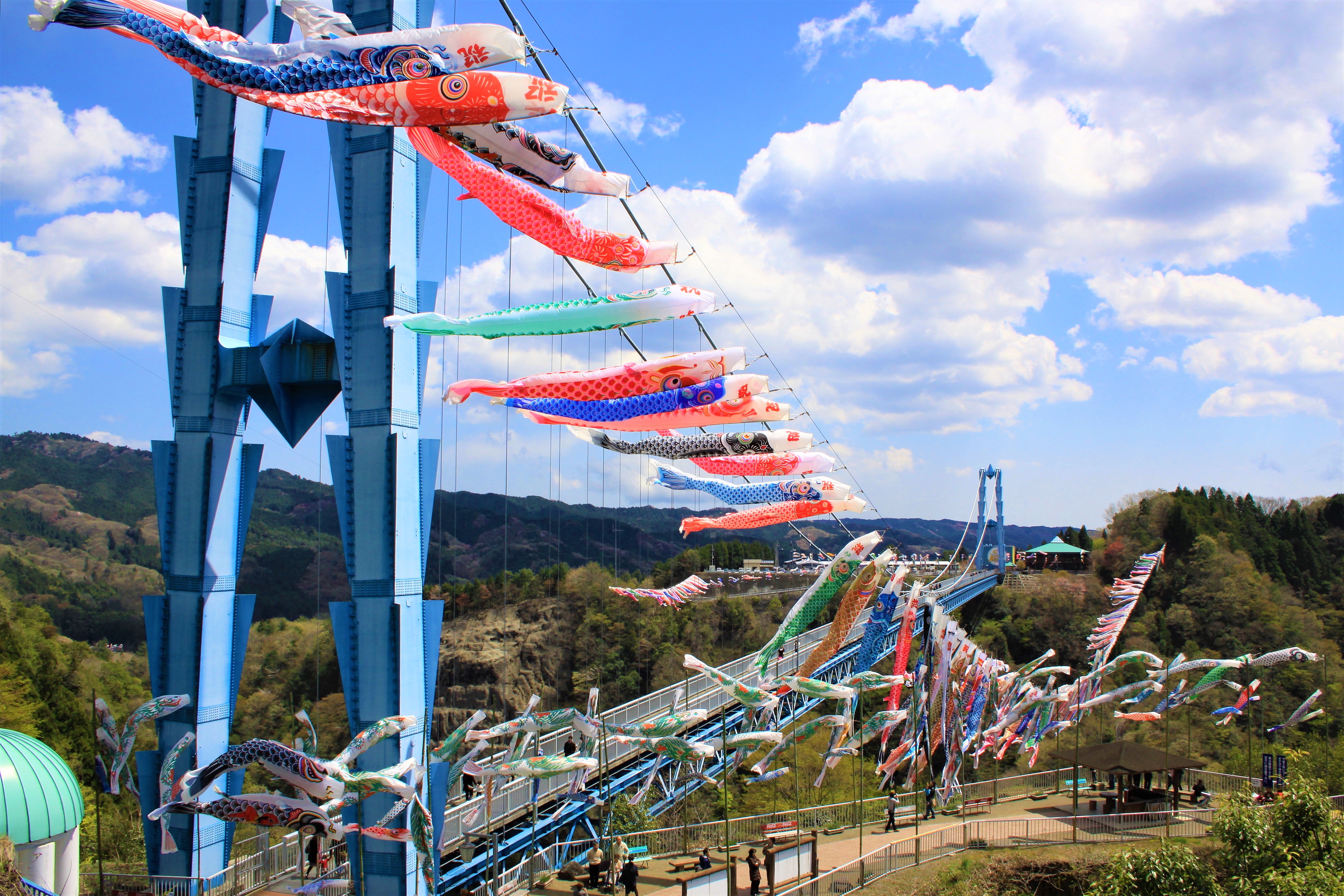
Every May, the park holds the Ryujin Gorge Koinobori Festival featuring one thousand carp streamers sailing in the wind. The colorful carp streamers flutter among the fresh greenery of Ryujin Gorge and shine brilliantly against the early summer sky. It is one of the most magnificent early May events in Japan.
Information
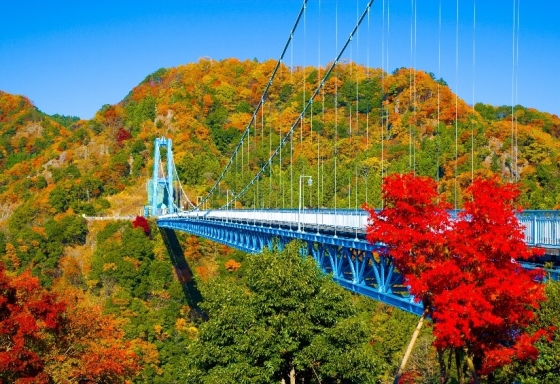
Ryujin Suspension Bridge
Ryujin Suspension Bridge stands 100 meters above the Ryujin Dam Reservoir. Spanning 375 meters, the bridge is inspired by the legend of a dragon said to reside in the Ryujin River. It offers panorami…
See More4. Summer: Amabiki Kannon Temple
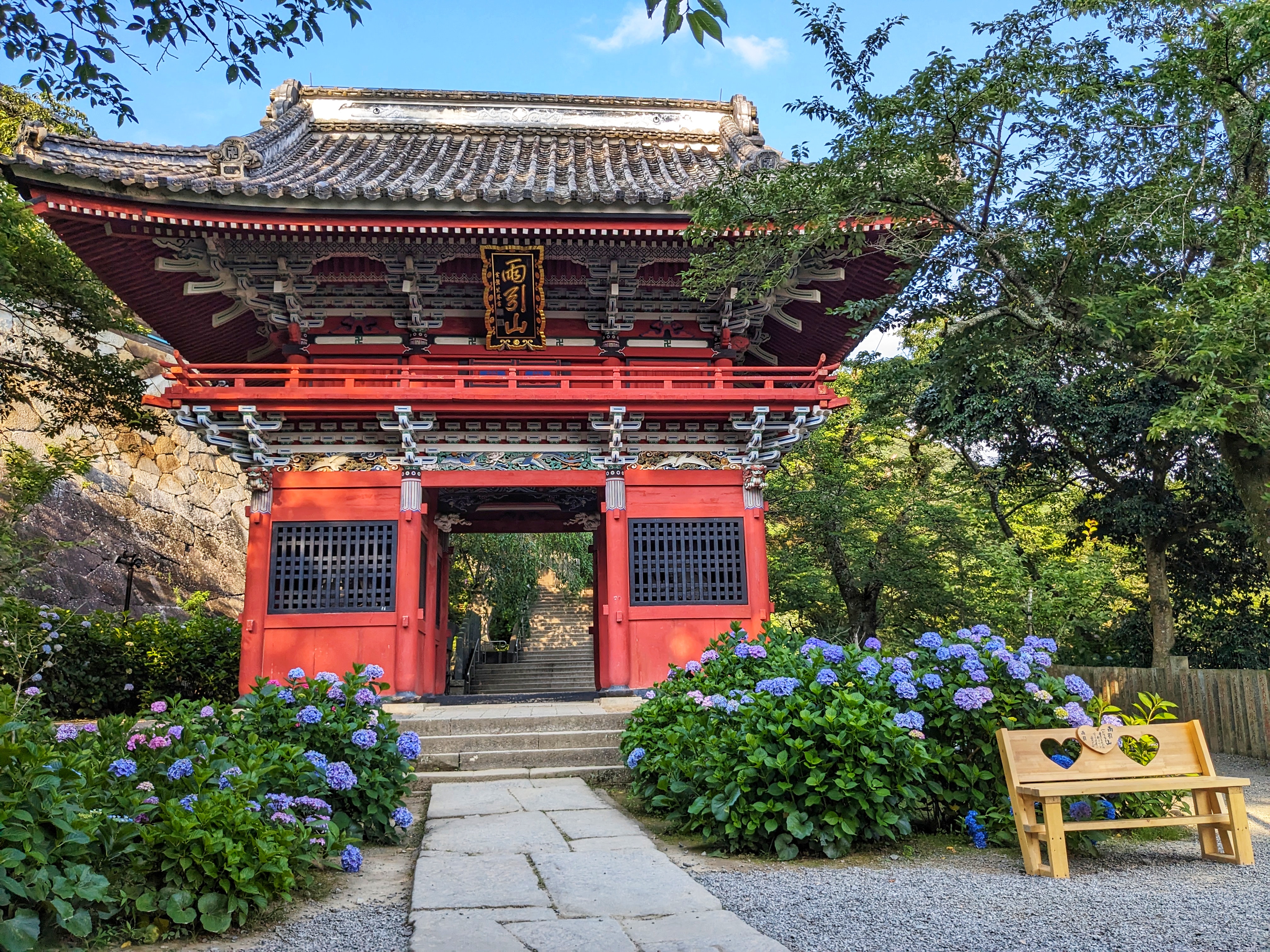
The deity enshrined at Amabiki Kannon is said to bless those who visit with safe childbirth.
Flowers of several varieties are planted inside the temple grounds. These seasonal flowers, which include cherry blossoms, azaleas, and peonies, are the highlight of spring. However, the sea of 5,000 hydrangea shrubs in one hundred different varieties is an absolute must-see!
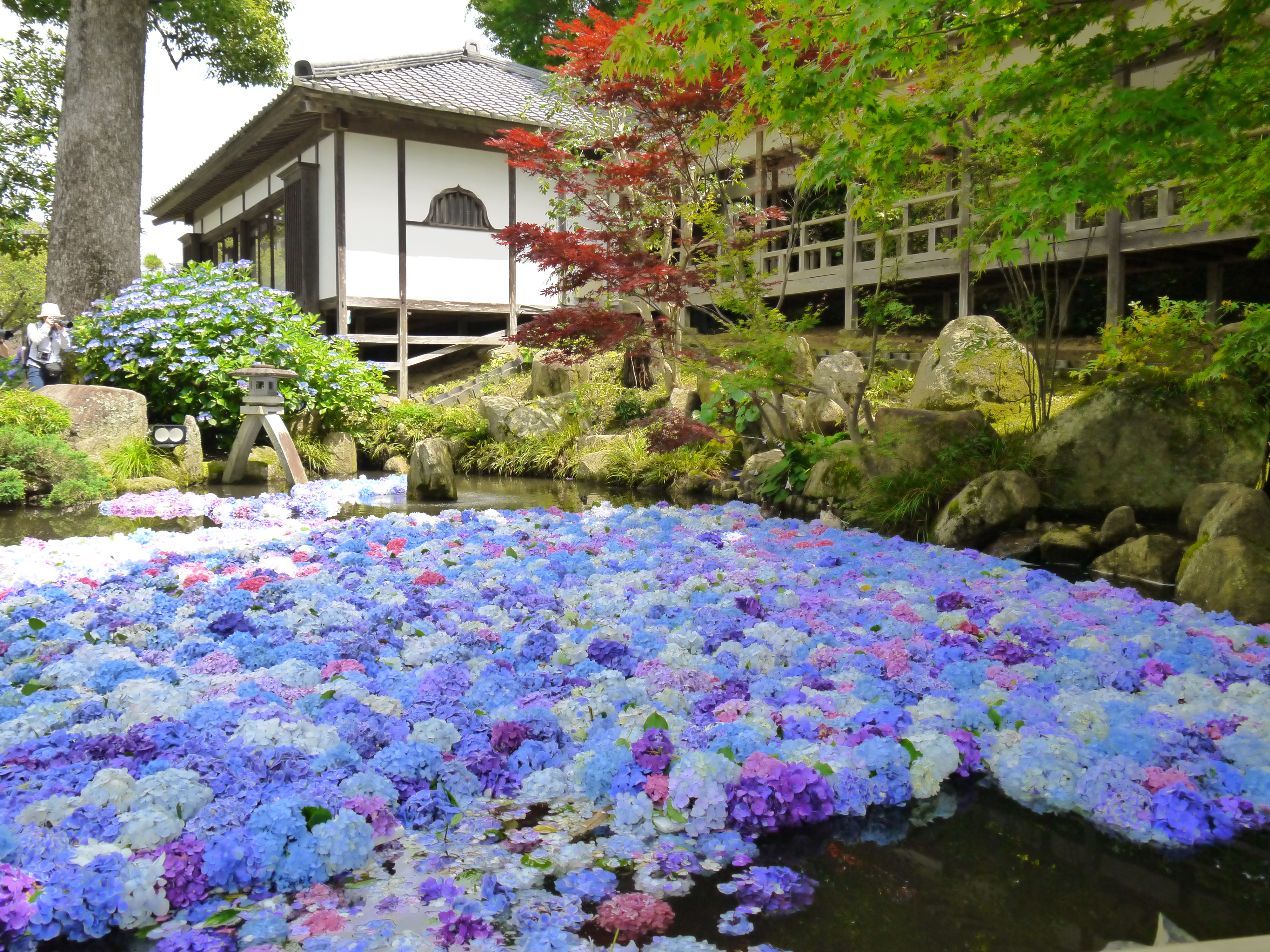
During peak season in late June, there’s a small path where the hydrangeas go into full bloom. The temple will arrange and place hydrangeas into the pond, creating a beautiful sight of colorful, floating hydrangeas not seen anywhere else. There are also illuminations in the evenings, so make sure not to miss this as well!
Information
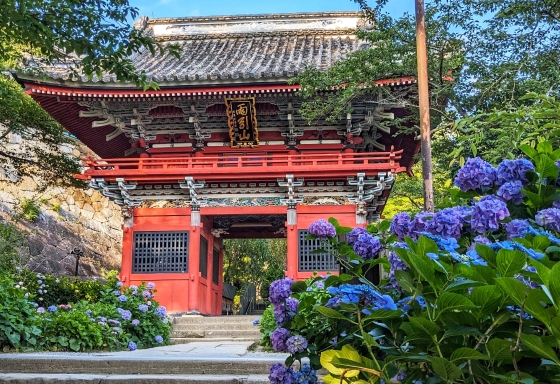
Amabiki Kannon Temple
Officially called Amabikisan Rakuho-ji, Amabiki Kannon Temple is dedicated to the goddess of safe childbirth, child-rearing, and protection from bad luck. Amabiki Kannon refers to the statue of the g…
See More5. Autumn: Hananuki Gorge
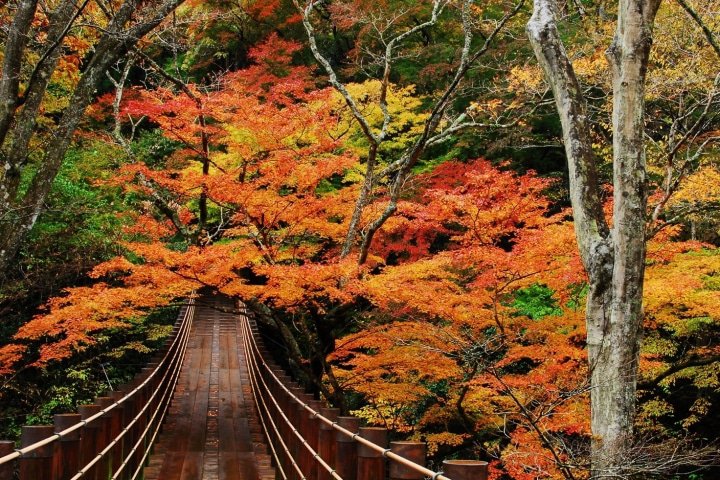
Pictured above is the 60-meter wooden suspension bridge hanging in the valley of Hananuki Gorge. The tree branches extend and encircle the bridge to form a natural tunnel.
Once it’s autumn, the trees begin to change color and transform the color of the foliage into a fiery red! In recent years, the gorge has gained popularity as the filming location for the serial TV drama series “Hiyokko.”
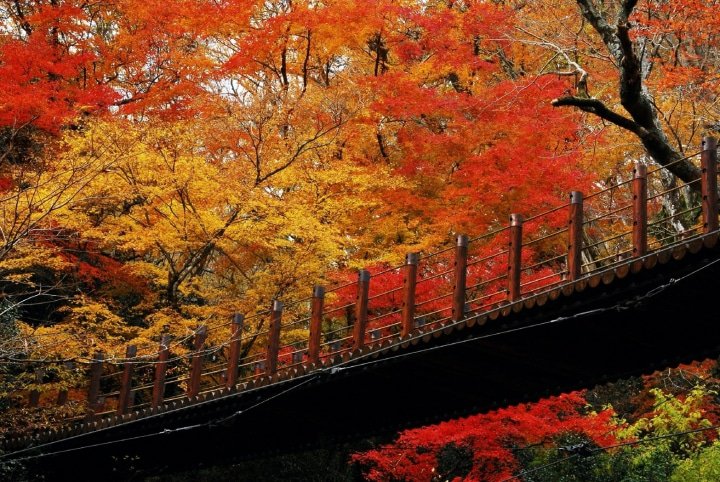
The view from the gorge is also exceptional. The nearby hiking trails allow visitors to take in the autumn scenery on a relaxing stroll.
Information
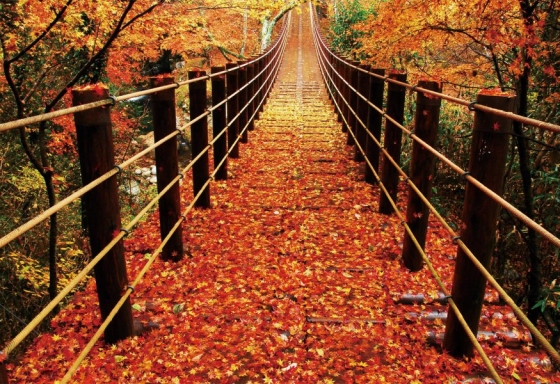
Hananuki Gorge
This scenic gorge area stretches from the Hananuki Dam to the Kotakizawa Camp Site. The gorge's most famous attraction is the stunning Shiomi Falls Suspension Bridge. There are also plenty of hiking…
See More6. Winter: Fukuroda Falls
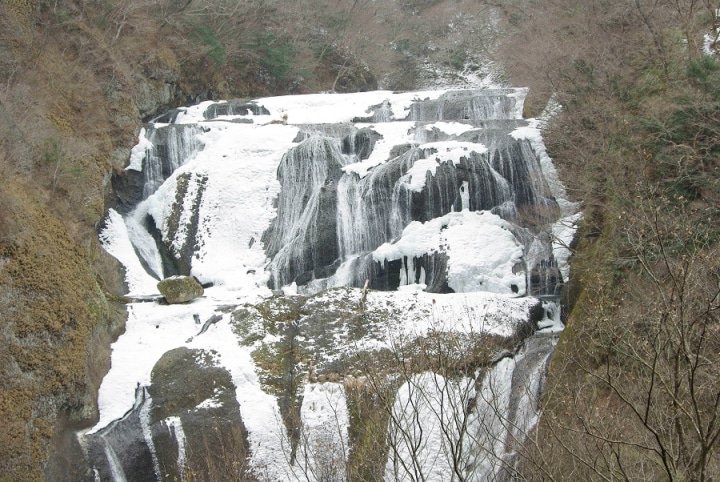
Fukuroda Falls is ranked among the top three major waterfalls in Japan. The water from this massive, 75 meter wide waterfall travels over four tiers before plunging from a height of 120 meters into the basin below.
The multiple rest stops along the trail to the waterfall make it possible to enjoy it from various angles. In winter, the waterfall becomes an icefall when certain conditions are met. Don’t pass checking out this rare sight!
Information
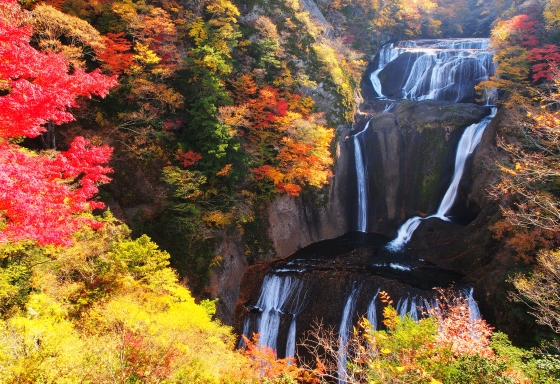
Fukuroda Falls
Fukuroda Falls is ranked among Japan’s "Three Great Waterfalls." A visit here will quickly reveal why. Water cascades over four levels of the rocky cliff face, earning it the nickname "Yodo no Taki" …
See MoreAmazing Sights to Enjoy at least Once in Your Lifetime!
We’ll introduce three amazing sights in Ibaraki that have been trending online in recent years.
Tsuchiura All Japan Fireworks Competition
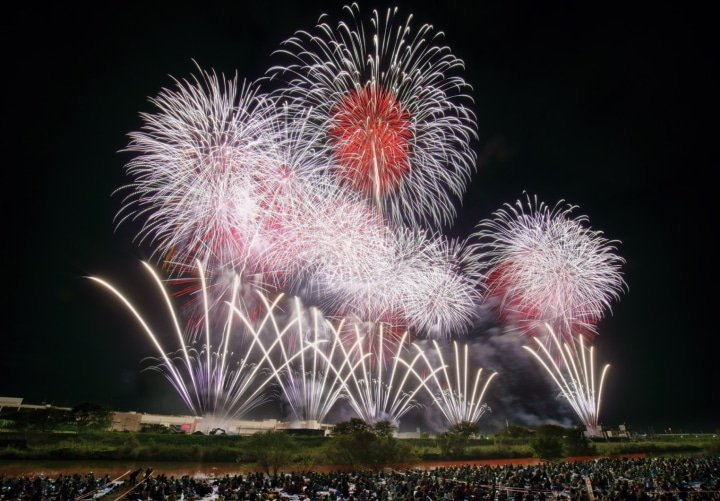
Ibaraki is home to numerous spots ranked among the top three in Japan. The Tsuchiura All Japan Fireworks Competition is no exception! In fact, it is one of the top three major fireworks displays in Japan.
The event began in 1925. At the time, it mainly served as consolation for the spirits of those who died in air battles, as an encouragement for the reconstruction following the Great Kanto Earthquake, and as gratitude for the autumn harvest.
Today, it has become a battleground for firework artisans nationwide to compete with their craft and skills.
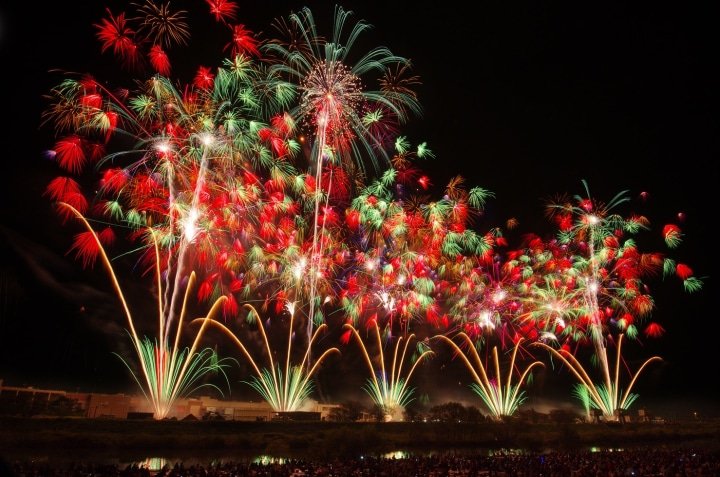
The Tsuchiura All Japan Fireworks Competition is a large-scale event with the most participating companies. You can enjoy fireworks showcasing the latest techniques and creativity. Starmine—a firework that rapidly fires in succession, painting the pitch-black sky like a canvas with colorful fireworks—is especially beautiful!
Information
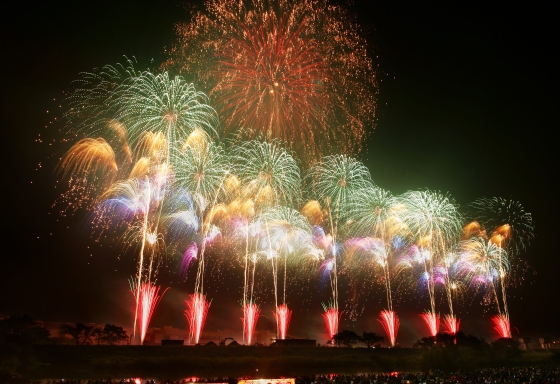
Tsuchiura All Japan Fireworks Competition
This firework display first began in 1925 to commemorate the Kasumigaura Naval Air Force members killed in WWI. The event also shines a light on tourism in the local area. In 1947, it was revamped as…
See More
Oarai Isosaki Shrine’s Kamiiso-no-Torii
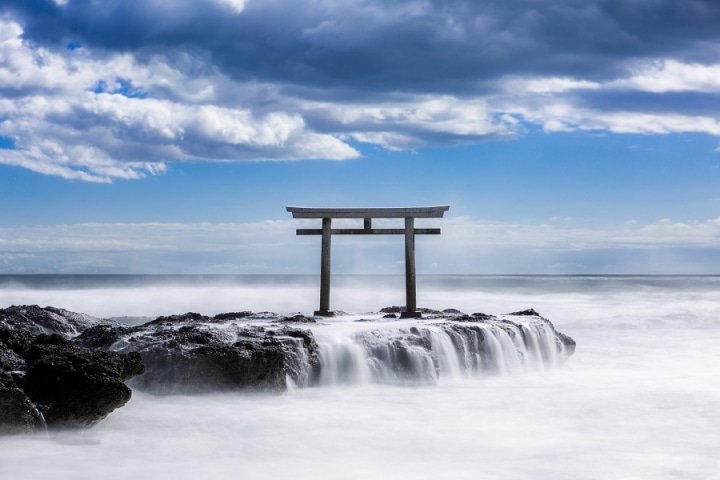
There are many torii gates in Japan that are constructed near lakes and oceans. However, something as magnificent as the Oarai Isosaki Shrine’s Kamiiso-no-Torii is quite uncommon!
This torii gate sits on top of a cliff and is said to be marking the place where Oonamuchi-no-Mikoto and Sukunahikona-no-Mikoto, the deities of the shrine, descended to earth. The white waves lapping against the rocks draw attention to the power of the torii gate.
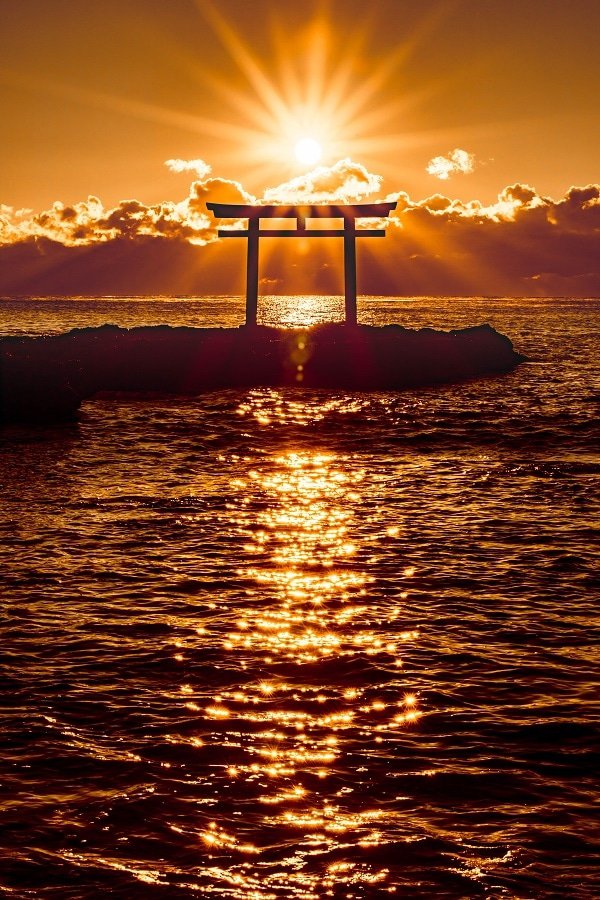
Oarai Coast faces the east making it a famous spot to view the sunrise. The slow ascension of the morning sun combined with sunlight pouring onto the waves appears as if the gods are descending onto the torii gates.
This sacred sight is so amazing that it may feel like you’re purifying your mind and body. How about visiting this site at least once in your lifetime?
Information
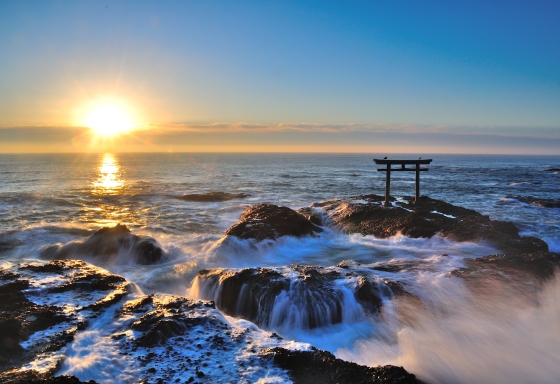
Oarai Isosaki Shrine
This shrine was founded in 856 when two deities are said to have descended upon the coast of Oarai. The two enshrined at Oarai Isosaki Shrine are Daikoku-sama, the god of nation-building and national…
See More
Hitachi Station
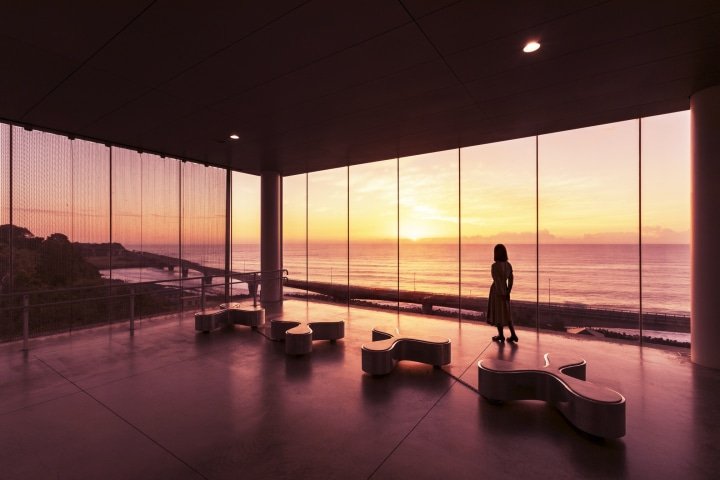
The Hitachi Station area is a famed sunrise spot along the Oarai Coast. This stunning sunrise was even praised by Mitsukuni Tokugawa, a former feudal lord of the Mito clan credited for naming the Hitachi area.
The current station building was designed by Kazuyo Sejima, a famous Japanese architect. The building uses a large quantity of glass so visitors can enjoy the ocean scenery from every direction.
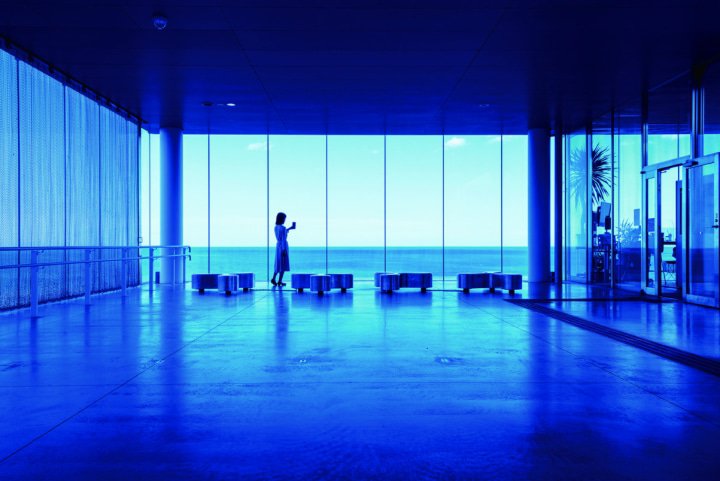
The station building is like a glass box acting as a special stage for the ocean and sky to reflect off each other. Of course, you can see the beautiful sunrise here. However, we recommend visiting during the daytime to catch the fantastic sight of the building surrounded by the blue ocean.
Information
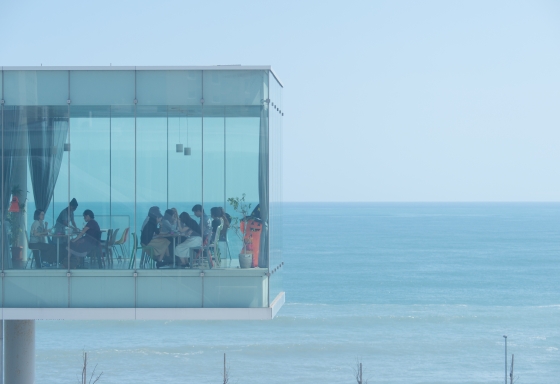
SEA BiRDS CAFE
Seabird's Café, adjacent to Hitachi Station, features large windows that offer a beautiful panoramic view of the Pacific Ocean and the Asahi Overpass along the coastline. The café and station, desig…
See More
Enjoy Splendid Nature in Ibaraki!
Ibaraki is perfect for a short trip to escape the hustle and bustle of the city. In terms of accessibility, it’s just an hour-a-half train ride or car drive from Tokyo. Why not grab a camera and visit Ibaraki to see these unforgettable sights for yourself?
This is your chance to discover lush nature, seasonal beauty, and amazing views!
